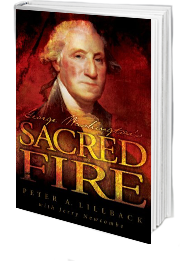Addressing America’s Original Sin
Recently we posted this quote to Facebook:
On this day in 1775, one day after restating their fidelity to King George III and wishing him “a long and prosperous reign” in the Olive Branch Petition, Congress sets “forth the causes and necessity of their taking up arms” against British authority in the American colonies. The declaration also proclaimed their preference “to die free men rather than live as slaves.”
This post generated a bit of conversation around our American freedoms, racial privilege and the history of slaves in America. One poster commented on the issue of white privilege from the inception of our founding which provided us with the opportunity to provide some historical education from our Founding Fathers. Our response is as follows:
It is true that the American story bears the marks of the evil and catastrophe of slavery. When our founding fathers determined they would not be slaves, ironically and tragically some of them were in fact slave owners.
However, it was the leavening impact of the Golden Rule that begin to shape the debate in early America. They began to reason if I don’t want to be a slave, how can I be a slaveowner? As a result, upon independence several states past laws to outlaw slavery. Just before the Civil War Abraham Lincoln put it very well: I believe any man can be a slaveowner just as soon as he is first willing to be a slave.
However, it took time and moral reasoning to overcome the millennia long practice of slaveholding.
Washington is a great case study at this point. He grew up as a slave owner. He was from a family that had owned slaves in America for four generations. When all the tensions began with the British king, he signed the Fairfax Resolves that determined there would be no more importation of slaves into Virginia. However, he had not addressed the matter of his own personal slave holding. At the end of the war, the records of the Methodist Bishops who met with him indicated he was beginning to agree that slavery needed to end in America. And so finally, a few years before he died, he wrote out his will freeing his slaves at his death and even providing personally for some by name and for all of them in general. He also began to teach them various trades that would prepare them for their liberty.
If America had followed Washington’s example, there would have been no need for the Civil War and the Emancipation Proclamation. In fact, Washington is the only slaveowning president who ever freed his slaves by his own initiative.
So the story of America is actually one of movement from tragic injustice to self-realization to emancipation in the justice of personal liberty. So ultimately, what the founding fathers wished for themselves by the power of the logic of liberty, moral justice, and the power of Jesus’ Golden Rule, came to be true for all and slavery is now long abolished in America.
The great love of Americans for the slave is evident in the fact that this most bloody war ever fought in the history of America had a vast majority of casualties and killed composed of those who’d never once in their lives met a slave. They had died by getting their lives for the good of another. Jesus said greater love has no man than this that he lay down his life for his friend. This indeed is the Golden Rule at work!
Along the same lines of moral argument, the great Christian statesman William Wilberforce led the battle to end slavery in the United Kingdom.
What are your thoughts?

